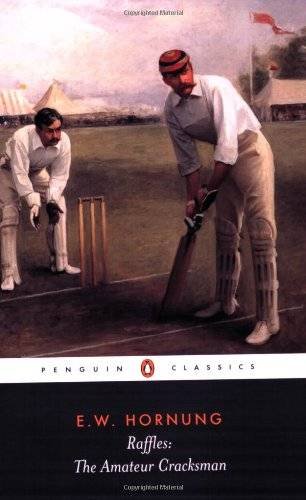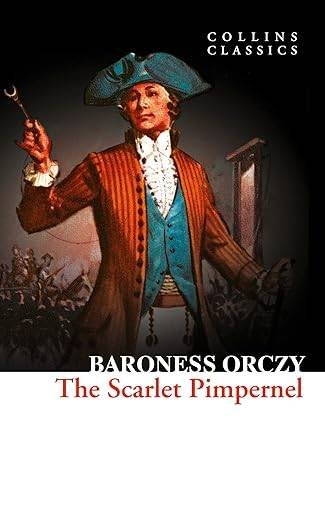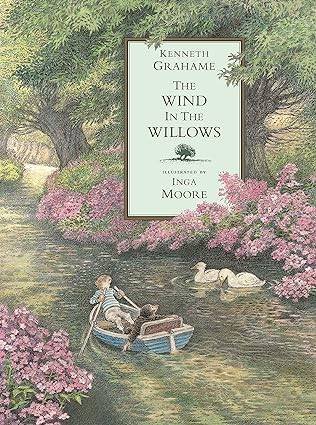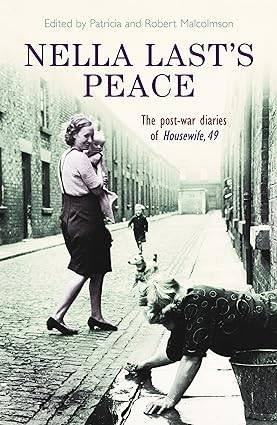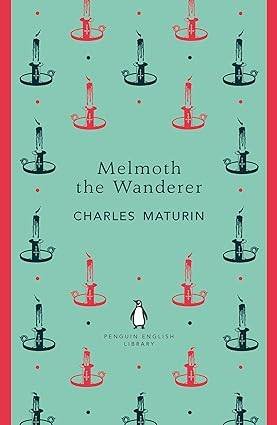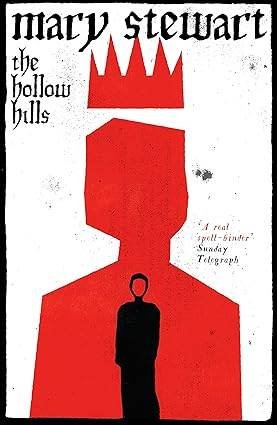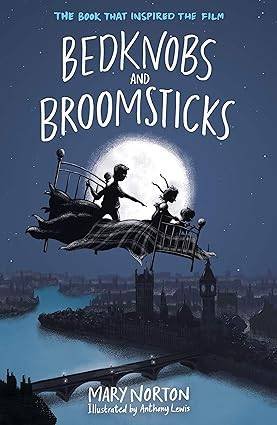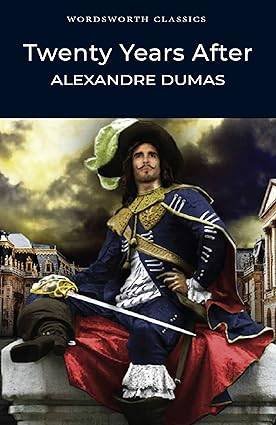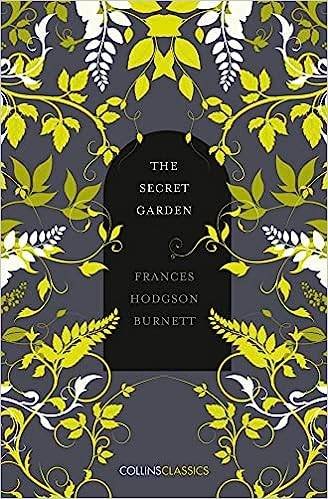Home » Book Reviews » EW Hornung » Raffles: The Amateur Cracksman by EW Hornung
Possible spoilers ahead
I’ve been keen to read a Raffles book for a while, since I learnt that Lord Peter Wimsey (my idol!) read Raffles. I love the description of Raffles on the back of the book as ‘daring, debonair, devilishly handsome, and a first-class cricketer’, all seeming to be very gentlemanly admirable qualities (and all of which can also be applied to Wimsey, I feel). I also love the notes on the text from this Penguin Classic edition, as the extra information about the time and the locations are really interesting and bring it all alive for me.
The first chapter is The Ides of March, and the notes are interesting in explaining this is the 15th March in the ancient Roman calendar where the Ides fall eight days after the Nones, and that ‘beware the Ides of March’ is from Shakespeare’s Julius Caesar and is a warning of danger. I can see a Wikipedia rabbit hole search coming on here, Ides and Nones!
The story is narrated by Bunny, who was at school with Raffles, and after losing all he has, and more than he has, at gambling at Raffles’ apartment, he returns there in desperation hoping Raffles can lend him money to pay his gambling debts and save his reputation or else he believes his only option is suicide. Raffles lives at the Albany building. I love the description of this location, and other locations, in the notes, I feel it shows that the writer of the notes was obsessive about these details, which heartens me as these are the types of things I obsess over too.
Raffles remembers that Bunny is good at writing so suggests this as a way to earn money, or to sell the furniture in his apartment, but Bunny insists writing wouldn’t bring in the money he needs and that he has already sold his furniture. He says he came into money three years ago and he has been a reckless fool and spent it all. He believes Raffles is rich, as he doesn’t appear to need to work and just plays cricket all year. Bunny describes AJ Raffles as ‘handsome’ and with an ‘indolent, athletic figure’ with ‘curly black hair…pale, sharp, clean-shaven features…strong, unscrupulous mouth’, and as a ‘splendid friend’ and with ‘the subtle power of making himself irresistible at will’ and a ‘masterful man’ who creates ‘a sense of safety’ and who has ‘consummate daring and extraordinary nerve’ but also seems to have ‘as little of mercy as of sympathy in that curling nostril, that rigid jaw, that cold blue eye’ and with ‘a tone so cynical’. Bunny describes the Albany apartment as ‘charmingly furnished and arranged, with the right amount of negligence and the right amount of taste’, he is surprised at the large amount of books and paintings Raffles has but reflects that he is a man of ‘many sides’. I like this building up of Raffles’ character, the description of him and the clues we are given of him as a person and his interests, and he sounds an interesting man of contradictions.
Raffles guesses that Bunny means to kill himself, so prevents him from leaving. He gets the gun off Bunny by surprising him with not displaying horror or fear at the sight of Bunny putting the gun to his head, and instead looks at him with ‘wonder, admiration’ and ‘pleased expectancy’. Raffles describes his response as ‘fascinated’ and that he admires Bunny’s courage in being prepared to kill himself. Hmmm, what kind of a man does this make Raffles, I wonder, to respond in this way? Or was it all an act and he’s a very quick judge of character and situation and had quickly and accurately anticipated how his own reaction could affect the result, that to react with horror or fear would ensure Bunny continued on his course whereas to surprise Bunny with this unexpected reaction actually stopped him in his tracks? That’s impressive if he is so quick at judging people and analysing situations, it gives a good guide to his skills.
Raffles says he will help Bunny but not by lending him money, as he has none to lend and is hard-up himself and was depending on his share of Bunny’s winnings to see him through. He says that he will now not take his share of the winnings from Bunny, although the other men undoubtedly will. He also makes Bunny promise that he will not gamble again in a misguided attempt to reverse his losses, saying this will only cause him more losses. Bunny promises to do whatever Raffles suggests. Raffles refers to an incident at school where Bunny saved him and ‘you didn’t talk and didn’t flinch. You asked no questions and you told no tales’ and says that Bunny ‘would stick at nothing for a pal’. I feel we are also being shown here the values that Raffles respects, such as loyalty and bravery. I like all this description of character, rather than just going straight into the crime with the characters somewhat remote and unknown to the reader.
Raffles asks if Bunny would consider crime as an option, Bunny immediately agrees although is apprehensive, and thinks that Raffles is probably only joking. They head out, Raffles calm and casual with ‘a covert coat over his blazer, and a soft felt hat set carelessly on the curly head’. Raffles has the key for an empty apartment which is for rent above a jewellers, having a few days ago arranged to view it and secretly taken a cast of the key, and they proceed to then break into the jewellers from the empty apartment above, Bunny ‘trembling like a leaf’ but feeling ‘it was impossible not to follow one who led with such a zest. You might question, but you followed first’. It only fully dawns on Bunny what they are about to do, ie burgle the jewellers, once they are in the property, and he is annoyed that Raffles didn’t trust him enough to share his plans beforehand. Raffles apologises for this, saying he was putting Bunny to the test but he now acknowledges that he didn’t need to. He gives Bunny leave to go, although saying it is a job for two men, but adding that he knows he can trust Bunny not to give him away if he leaves. Bunny states he will stay and help him, while recognising his friend’s ‘fiendish cleverness. Had he fallen back on threats, coercion, sneers, all might have been different even yet…(but) he trusted me. He knew my weakness and my strength, and was playing on both with his master’s touch’. Hmmm, Raffles again seems like someone who is very good at judging character, or perhaps he is just naturally a winsome and attractive man, not actually doing anything by design but just his natural way appeals to people.
There are several locked doors and iron gates to get through in order to enter the jewellers, which takes patience and skill on Raffles’ part while Bunny alternately holds the light and keeps watch. Bunny feels that ‘the romance and the peril of the whole proceeding held me spellbound and entranced. My moral sense and my sense of fear were stricken by a common paralysis’. They are successful and steal a whole counter of jewels, and walk casually away.
Bunny questions Raffles if he has done this before, and he says he has and names a few famous robberies which he has done, however he states that to explain how he began on this route is too long a story to tell now, but ‘Why should I work when I could steal? Why settle down to some humdrum uncongenial billet, when excitement, romance, danger and a decent living were all going begging together?’. Hmmm, so stealing isn’t just for the gain of money for Raffles but also for the sport and excitement of it, I can imagine this with the characteristics we are learning of this man.
Bunny states that he will never steal again, but Raffles tells him that he is the perfect man to help him and comments on how well they work together, however he adds that he won’t ask him to take part in anything like this again and that Bunny is free to go if he wishes. Bunny then says he will join with Raffles and do this again. Hmmm, so the partnership is formed, I am presuming each story will feature the two of them rather than just Raffles alone, and that Bunny will act like a Watson, detailing the clever exploits of Raffles.
The second chapter is A Costume Piece, and is their unsuccessful attempt to steal from the millionaire, Reuben Rosenthall, by breaking into his large home in St John’s Wood. Rosenthall’s vulgarity and boastfulness seem to quite fascinate Raffles, and Raffles views the attempt of robbing him as a challenge which would dent his own reputation and self-respect if he didn’t try it, ‘one couldn’t hear so much of the man…and his diamonds, without feeling it a kind of duty to have a go for them…the thing becomes inevitable. It is simply thrust upon one…if I don’t have a try for them…I shall never be able to hold up my head again’. Bunny feels, however, that the attempt is unnecessary, that it has been only a month since they robbed the jewellers and ‘we certainly could have afforded to behave ourselves for some time to come…I thought we ought to know when we were well off, and could see no point in our running fresh risks before we were obliged’ and he felt ‘the sheer, gratuitous, unnecessary folly of it’. Bunny also points out the difficulties of success, with Rosenthall being armed and always accompanied by his prize fighter bodyguard, but Raffles states ‘there’s some credit, and more sport, in going where they boast they’re on their guard against you’ and ‘a man’s reach must exceed his grasp’. Hmmm, so again showing that it’s not just the money which drives Raffles to steal but also the sport and the challenge of it, which is a potentially dangerous combination, I feel. And I also think this section gives an interesting example of their different characters, and perhaps we are learning more about Bunny’s character in this chapter.
Raffles says they will have to take great care with the planning, and watch the house and the inhabitants’ behaviour for some time. Bunny feels again that Raffles is excluding him from the planning, that with his ‘charming frankness, there was in Raffles a vein of capricious reserve (and) he had the instinctive secretiveness of the inveterate criminal’ and Bunny finds this secretiveness ‘very irritating’ and that his friend’s ‘want of confidence in me…rankled every day’. Bunny feels that he ‘had already earned the right to know everything’. Hmmm, again, like Watson and Sherlock, I feel, with Sherlock keeping things close to his chest and only telling Watson at the end rather than involving him along the way, perhaps Raffles enjoys showing off and is susceptible to wanting to impress people, as I feel Sherlock is, or perhaps he is just used to working alone and it is taking him a while to adjust to having a partner. It also reminds me of Watson and Sherlock, as Bunny says he has written a piece about their jewellery robbery, much as Watson writes about Sherlock’s cases. I think Raffles also likes all the planning process too, and being methodical and logical are other aspects of his character.
This feeling of being excluded causes Bunny to determine to also act alone so he goes to watch Rosenthall’s house one night, but is hurried away by an angry and scornful Raffles in disguise, telling Bunny that he is risking all the hard work already done by himself. Raffles has achieved this work of spying out the house by adopting various disguises, including as a tramp and even copying the walk and dirtiness and smell of such a person and renting an artist’s studio in a rough part of London where he could retreat to as that character. Raffles’ dedication to the part impresses Bunny and he ‘felt the fascination of a comrade who was forever dazzling one with a fresh and unsuspected facet of his character’. When challenged by Bunny about not sharing the details of the plan with him, however, Raffles acknowledges that he has ‘been too close’ and has treated Bunny ‘very shabbily all round’, and says ‘you must try to forgive me’, though he implies he had Bunny’s welfare in mind by keeping him in genuine ignorance of Raffles’ whereabouts, both in case Raffles had been caught then Bunny knowing nothing could allow him to stay unsuspected, and also because Raffles feared that if Bunny knew all the details too far in advance of the action that it could make him nervous, Raffles noting that Bunny kept his nerve well last time in the jewellery robbery because he knew nothing about what was to happen. Raffles also explains that he sells the stolen goods while in disguise, and adopts the accent of a Shoreditch resident to do so. Raffles admits that their chance of success at robbing Rosenthall is slim, and he also urges Bunny to only have one drink the night before the attempt, likening it to the sensible caution employed before a game of cricket. On the night, Bunny is nervous, ‘with a hand whose trembling I tried in vain to still, and could have died for Raffles when he made no comment on what he could not fail to notice’. Awww, I like Raffles for that. I also like that Raffles apologises for his reticence towards Bunny and promises to try and alter, being honest enough to recognise that he’d hurt Bunny.
It turns out that Rosenthall was aware of Raffles in his disguises the whole time, so the inhabitants all pretend to go out to the theatre and sneak back when Raffles and Bunny have entered the house and therefore catch them red-handed, Rosenthall mocking Raffles for being caught. Raffles only manages to escape by taunting Rosenthall for being a diamond thief and implying that his bodyguard had betrayed him with this information, causing confusion between them both and giving Raffles the chance to run. Bunny however is punched and briefly knocked unconscious, meaning he misses the chance to escape. Rosenthall later threatens to shoot Bunny, although his bodyguard tries to dissuade him from this, but Raffles comes back disguised as a policeman and takes Bunny away, having also sent a taxi driver to Scotland Yard to ask Inspector Mackenzie for back-up so to ensure the police would shortly arrive at Rosenthall’s house and hopefully cause him some difficulties. Hmmm, I wonder if this failure will damage Raffles’ pride but I guess he can be proud of his ingenuity in the end in bringing about both their escapes due to his quick thinking and clever disguise.
The book reminds me of the Arsene Lupin stories, as it’s a gentleman thief and also because the narrator isn’t Raffles himself, as Lupin isn’t his own narrator. I guess comparison between Raffles and Lupin is inevitable, both being gentleman-thieves, and I feel a bit bad admitting it but the Raffles stories aren’t initially grabbing me quite as much as the Lupin stories did. I’m enjoying this book very much and it’s great fun to read, but I remember Lupin’s escapades as being just slightly more audacious and flamboyant and surprising and clever, and therefore more exciting to read. I wonder if this is partly because Lupin is pitting his wits against an adversary, Inspector Ganimard, so his deviousness and quick-thinking can be emphasised with his efforts to get one over on Ganimard, a man who knows Lupin’s methods well. I also wonder if it’s easier to enjoy the thief getting one over on the detective, more than him getting one over on his friend which is kind of what happens with Bunny and Raffles, with Bunny being kept in the dark and then having the surprise of the reveal. I had also presumed that the Raffles books were written first and that Lupin’s author was influenced by the Raffles books, but when I’ve checked the dates they seem to be written at a very similar time, Raffles in 1899 and Lupin in 1906, so perhaps both authors just had a similar idea at the same time.
The third story is called Gentlemen and Players. Bunny has begun accompanying Raffles to his cricket matches and is impressed at his skill, as he displays a ‘combination of resource and cunning, of patience and precision, of head-work and handiwork’. Bunny is daunted, however, to learn that Raffles has pretended that Bunny is also a skilled cricketer so as to get them both invited to a cricket weekend at Lord Amersteth’s house, Milchester Abbey, in order to attempt to steal Lady Melrose’s diamond necklace. Raffles tells Bunny he wouldn’t usually abuse his position as an invited guest but he feels he’s only been asked to the house for his skill as a cricketer so therefore feels more equivalent to a waiter than a guest. He is again reticent with sharing the planning with Bunny, but Bunny now accepts this and tries to not be as hurt or frustrated by it. When they arrive in the area of Milchester Abbey however, Raffles recognises a fellow thief in the pub, and they are later told that Inspector Mackenzie from Scotland Yard is staying at the house disguised as a guest, as the family have heard a rumour that a theft of the diamond necklace will be attempted. This makes Bunny nervous and he presumes they will no longer attempt the theft themselves, however Raffles sees the opportunity for them to succeed when everyone is on the lookout for the other thieves, as well as the opportunity to win over the thieves by stealing the necklace from under their noses. He describes it as ‘a great game’, but Bunny is more cautious and warns Raffles not to lead them into danger based on his sporting spirit. Raffles watches the thieves’ attempt to steal the necklace and intercepts their rope dangling down from the window of the house to another thief waiting below, and steals the necklace himself. Not having shared this plan with Bunny, he then surprises him when they leave the house by producing the necklace. The detective is shot in the attempt to catch the thieves he thought had stolen the necklace, but he recovers. Tee hee, this story made me smile with Raffles’ audacity in stealing the diamonds under the nose of the other thieves, and I loved the setting of a stately home and how Raffles played his part as a guest there while secretly planning to rob them. I was also interested to learn a little more about Bunny in this story, and especially am envious of his ‘gift of dismissing unpleasant considerations, not intimately connected with the passing moment, entirely from my mind’, I admire that ability very much and would like to adopt that rather than my usual habit of constantly turning things over in my mind and worrying about them. And this is the second story in which Inspector Mackenzie has been mentioned, so I am wondering if he’ll become a regular character, like Sherlock’s Lestrade or Lupin’s Ganimard.
The next story is Le Premier Pas and is the story of Raffles first ever crime. It took place in Australia, and Raffles says it was unpremeditated. He went there with friends to bet on ‘the certain winner’ at the Melbourne Cup horse race and lost his money, but didn’t want his companions to know how broke he was so had to find a way to get some money. He tried to lend money from the Jews but was refused, and then remembered a second cousin of his father’s that lived in the area so decided to appeal to him. He learnt that this relative was due to take over the management of a bank so he travelled through the bush on horseback to meet him, but came across a bushranger who sent him off on a longer route. Raffles didn’t realise it at the time but this bushranger had actually attacked and robbed Raffles’ relative and left him for dead. Raffles arrived at the bank and was mistaken by the servant for his relative, the new bank manager, so Raffles decided to play along with this, hoping an opportunity to his advantage may result, as he began himself to suspect that his relative had been injured or waylaid by the bushranger. Raffles decided to rob the bank, there being no-one else on the premises but the servant and his wife, so he asked the servant lots of questions about the layout of the bank and particularly where the keys were kept, in his role as the new manager. He then collected the keys after the servant had gone to bed and took as much gold as he could carry from the safe. He was just about to head outside for his horse when there was knocking at the door which the servant answered. It was the genuine bank manager, Raffles’ relative, injured and near death. The servant was reluctant to believe the stranger, declaring that the new bank manager had already arrived, but they both then realised the truth and guessed that Raffles probably intended to rob the bank so went up to Raffles’ bedroom as he ran out to his horse with the gold and rode away. Bunny is surprised that Raffles tells him the tale after always refusing to do so, but it seems to Bunny that Raffles had ‘the ghost of a dead remorse’ regarding this first venture into crime. Raffles also gives Bunny credit for teasing him into telling the story after he had refused to do so many times. Hmmm, I like that Bunny can be tricksy too and has learnt how to read Raffles’ character and to sometimes use this knowledge to encourage him into things, like Raffles frequently does to Bunny.
The next story is called Wilful Murder. This is quite an astonishing tale, as Raffles seems actually prepared to commit murder. His fence, Baird, has guessed that Raffles is a gentleman rather than the common working-class criminal he pretends to be, as he recognises the Lady Melrose diamonds that Raffles is trying to sell to him and realises they could have only been stolen by someone who could pass at the house as a gentleman. Baird therefore decides to follow Raffles to find out more about him. Raffles becomes aware of this and tries to throw Baird off his trail but in the meantime Baird has discovered Raffles’ studio and his flat and Bunny’s flat. Raffles suggests to Bunny that their only course of action is to murder Baird that night, as he guesses that Baird would blackmail them and also take bribes from the police. As well as keeping them safe, Raffles also likes the idea of committing a murder and getting away with it, of being able to talk to other men about a murder and them having no idea he’d committed it. Bunny is horrified and struggles to believe that Raffles is serious, but he then ‘read murder in his clenched hands, and murder in his locked lips (and) a hundred murders in those hard blue eyes’. Bunny states he will go to Baird’s home with Raffles, though he is made by Raffles to promise that he won’t interfere, though he still hopes to avert Raffles’ course in some way. When they reach Baird’s house, Bunny questions how they will enter, and Raffles says he half hopes that Baird will be woken up by them breaking in as ‘then it will be man to man, and devil take the worst shot. You don’t suppose I prefer foul play to fair, do you?’. They break in to discover that Baird is already dead, as Jack Rutter had got to the house before them and killed him. Jack is a desperate man, driven to drink and debt and ruin due to borrowing money from Baird and being charged an exorbitant interest, so he decided to end Baird’s hold over him. Jack said, when he arrived at the house, he had instructed Baird to write and sign a settlement of all Jack’s claims against him, otherwise he would kill him, but Baird then pulled a gun on Jack and fired three shots, which missed him. Jack then hit Baird with the poker and killed him. Jack says he will give himself up, that it was self-defence rather than murder but that he will face the consequences or go mad, and then begins to become hysterical. Raffles tells Jack to escape the house with them and they all get away, Jack being supported by the others as he weeps and staggers. Raffles then puts Jack onboard a ship bound for New York. Hmmm, I am relieved that Raffles didn’t commit murder, though it was a surprise to me, as to Bunny, that he was prepared to do so, I can see that Raffles felt that they would be trapped if he didn’t stop Baird, but it seems a little out of character for Raffles to go that far, though I note that even though he is proposing murder he still does have some morals about it, saying he hopes Baird will be woken up by them breaking in as this would then make it more of a fair fight, so this seems more fitting with the gentleman character we’ve learnt of him, rather than just brutal murder. I also like the way that Raffles is eager to calm Bunny’s anxiety, playing down what had happened when Baird initially followed him and even concealing some of the details, such as that Baird had followed him to his flat.
The next story is Nine Points of the Law. Raffles and Bunny answer an advert in the paper offering £2000 reward to someone undertaking a ‘delicate mission and prepared to run certain risk’. They learn the advert has been placed by a shady lawyer called Addenbrooke, and the mission is to steal a priceless painting sold improperly and for revenge by the son of its owner to an Australian man called Craggs. Addenbrooke says that Craggs could be forced by law to return the painting as the sale was illegal, but the owner doesn’t want a public scandal and for his son to be shamed, and Craggs has refused any amount of money to return the painting, so Addenbrooke says the only course left is to steal it. Addenbrooke refers to the mission as recovering stolen property rather than as stealing, and states the owner will repay Craggs his money once the painting has been safely gained. Raffles demands £4000 if they are successful, saying they then expect nothing if they fail, and this deal is accepted. Raffles goes to Craggs telling him that a man had tried to sell him a copy of that particular painting so he had gone to its known owner who then told him he had sold it to Craggs. Craggs is eager to gloat about this, so shows Raffles the picture and how it is safely stored in a map case under lock and key. Raffles manages to quickly get a wax copy of the key when he holds it briefly in his hand while Craggs shows him the clever lock. Raffles tells Bunny that he ingratiated himself with Craggs and got an invitation for them both to dine that night at his hotel, as Craggs sails for Australia the next day with the painting. Raffles says that Bunny will attend the dinner, with Raffles sending a message that he can’t make it due to the sudden illness of a relative, and that Bunny must keep Craggs talking while Raffles sneaks in and steals the painting. Bunny is horrified and is doubtful of his ability to keep Craggs talking, while knowing that Raffles is in the next room. Bunny soon feels no remorse for their actions though when he discovers Craggs to be ‘ill-bred and ill-informed’, to have got his money through luck, and to be full of cunning and malice. Later in the evening, Craggs insists on showing Bunny the painting in order to gloat over it, and Bunny is shocked to see the painting revealed in the map case when it is unlocked and presumes that Raffles has failed in his attempt to steal it. Bunny then determines to steal the painting himself, so after he leaves Craggs’ hotel at the end of the evening, he sneaks back after collecting some chloroform from his flat, and applies it to the drunk and sleeping Craggs and then takes the painting, wrapping it around his body underneath his coat. He is terrified of discovery on his way to Raffles’ flat, but is overjoyed at thinking of how pleased Raffles will be at his success, and also pleased himself that for the first time he has played a commanding role and how much more highly Raffles will now think of him, as well as that they can now be honest men with the money they will collect. But Raffles informs Bunny that he has actually taken the copy that Raffles put in place of the original when he stole it. Bunny is angry and hurt at being made to feel a fool, and at the confirmation that Raffles again didn’t share his plans with him. Raffles does begin to praise Bunny for his daring, but Bunny cuts him off saying he hates this thieving life and will do it no more. Oh dear, poor Bunny, it would have been nice if he could have succeeded just once. Their differences in characters are an interesting mix, and I guess Bunny has to be kept in the dark as he represents the reader being kept in the dark until the great reveal at the end, but we also get details of how he feels about this concealment and how hurt he is, as he is the one telling the story, which makes him a far more involved and well-rounded character.
The next story is The Return Match. Raffles tells Bunny that one of the criminals, called Crawshay, who had attempted to steal Lady Melrose’s diamond necklace at Milchester Abbey, and who Raffles foiled by taking it himself, has escaped prison (he had been arrested for being involved in the diamond necklace crime). Raffles says he admires Crawshay’s ingenuity in escaping prison and in evading capture, but says he fears that Crawshay will head for Raffles, knowing that he was the one who took the diamond necklace, as Crawshay wrote to Raffles before his trial telling him that he knew this. Raffles tells Bunny that he therefore plans to hide at his sister’s house in the country for a while, and recommends to Bunny that he also leaves town for a while. However, Crawshay then appears in Raffles’ room, having broken in through an empty apartment in the Albany building and scaled over the roof to break into Raffles’ apartment. Crawshay and Raffles treat one another quite respectfully, praising each other’s work, Crawshay says they are ‘brothers in arms’ and that he expects Raffles to help him get away from England and to ‘see a brother through’, though hinting that if he is caught he will take Raffles and Bunny down with him. Raffles agrees to help him, saying it’s ‘perfectly fair’ and that Crawshay is ‘a great sportsman’ and that it would be ‘a thousand pities’ to have him go back to prison after he has escaped. They discover that Inspector Mackenzie is at the Albany hunting for Crawshay, and this alarms Raffles, though he greets Inspector Mackenzie in a friendly manner, reminding him they previously met at Milchester Abbey and that he helped Inspector Mackenzie catch the criminals there. Raffles then begs to be able to help again, which Inspector Mackenzie grudgingly agrees to. To Bunny’s horror, Raffles even gives Inspector Mackenzie the key to his apartment, saying Inspector Mackenzie is free to search it as he is about to go out to dinner, and Bunny watches from the window of another apartment with Inspector Mackenzie as Raffles goes to his apartment and then leaves again handing his key to the policeman by the door of the building. When Inspector Mackenzie and Bunny go to Raffles’ apartment themselves however, they find Raffles chloroformed and with a wound on his head. Bunny’s shock and his tears, as he fears that Raffles is dead, is apparent to Inspector Mackenzie as obviously genuine, which therefore protects Bunny from any suspicion of being involved when Inspector Mackenzie then realises that the man in Raffles’ coat who handed the key to the policeman was actually Crawshay and that he has escaped. I really liked this story, it was very clever, and I also liked it with Raffles having to pit himself against an adversary in Inspector Mackenzie, like with Lupin and Ganimard. And I’m intrigued if this means that Inspector Mackenzie will be part of future stories. Again, as with most of these stories, there are plenty of sporting and cricket references.
The final story is The Gift of the Emperor. Bunny is trying to earn money from writing as he has shunned crime, which Raffles describes as Bunny’s ‘lapse into virtue’. But Bunny is struggling financially and has had to sub-let his flat and move to a cheaper area. One of the pieces he has written about was a pearl, worth £100,000, being returned by an European emperor to its original country and which has caused great offence as this was a gift to the emperor from Queen Victoria. Raffles invites Bunny to accompany him on a sea voyage to Italy to cheer him up and help him forget about his financial problems, Raffles saying he will pay the expenses. Bunny is delighted to accept. However when they meet onboard, Raffles admits to Bunny that his aim is actually to steal the famous pearl, which is being carried onboard by an envoy called Von Heumann. Bunny isn’t as horrified at this news as Raffles expected, as Bunny says he has tried to live honestly and has failed so is open to the thought of again being a thief. Raffles speaks himself about possibly retiring from crime after he has won the pearl and can live on the proceeds. Raffles, to Bunny’s frustration and hurt, then devotes himself totally to a Miss Werner who is admired by Von Heumann, ignoring Bunny completely, Raffles thinking she can give him information about the pearl and also feeling it looks less suspicious if he makes an enemy of Von Heumann rather than try to be his friend. He says to Bunny, when describing his plan, that he will try to avoid hurting or killing Von Heumann as ‘violence is a confession of terrible incompetence’, however he says ‘I have been quite ready to kill my man every time, if the worst came to the worst’. Raffles climbs through the ventilation shaft in their room, and into Von Heumman’s room. He then chloroforms Von Heumman, as he is already drunk and sleeping, and gets the pearl. They are rejoicing in their success, but then Inspector Mackenzie comes onboard the ship. Raffles guesses that Inspector Mackenzie has suspected him ever since Crawshay escaped, and when he learnt that Raffles had travelled on this ship he then looked for likely reasons why Raffles should do so and found out that the pearl was being transported on the same ship. Raffles refuses to tell Bunny where he has hidden the pearl, so Bunny can’t be interrogated. They realise their room has been searched and the ventilation shaft looked at. Inspector Mackenzie summons Raffles and Bunny to the captain’s state-room and issues a warrant for their arrest, accusing them of two burglaries and the Melrose diamond necklace theft. Raffles gives Inspector Mackenzie the pearl, hidden in a cartridge of his gun, and then asks to say goodbye to Miss Werner stating that he is engaged to her. Raffles grabs Bunny’s hand, and Bunny ‘wrung that strong and cunning hand for the last time in my life’. Raffles speaks to Miss Werner, then kisses her and suddenly pushes her away from him and dives overboard to swim the ten miles to Elba Island. One of the ship’s men tries to grab Raffles, but Bunny stops him, allowing Raffles to escape. Boats are launched to search the sea for Raffles but he isn’t found. The book ends with Bunny’s summary of his ‘long imprisonment’ and ‘everlasting disgrace’, but also that he thought, as his eye scoured the sea desperately, that he saw Raffles’ head bobbing above the waves as he approached Elba Island.
Omg, that’s the end! Is Raffles dead?! Bunny’s grabbing of Raffles’ hand ‘for the last time in my life’, seems to imply that Raffles has died, although there is then Bunny’s desperate hope, looking out at the sea, that he has survived. Or, as there are other books, presumably Raffles has survived and perhaps it meant that Bunny isn’t part of the future adventures and isn’t the narrator in future books and doesn’t meet Raffles again, which would be a shame as I like the contrast between the two characters and Hornung has clearly spent some time developing Bunny’s character. Or did Hornung originally intend Raffles to die and then changed his mind? I also wonder if Raffles was actually engaged to Miss Werner, or was that all just fabricated in order to get Inspector Mackenzie’s agreement to him leaving the captain’s state-room to speak to her, therefore giving him the chance to jump overboard? And I’m curious what Raffles was saying to Miss Werner before he jumped, just nonsense, or actually promises of love and plans for the future? I am gutted that Bunny was jailed, and clearly for a far longer time than Raffles had envisaged. Yes, Bunny had taken part in thefts so was a criminal and in fairness deserved then to have justice meted out to him, but he wasn’t the mastermind of it so the long sentence seems a bit harsh. Perhaps because they didn’t have Raffles, they then determined to punish Bunny instead, and also perhaps as Bunny had hindered their capture of Raffles and aided his escape they punished him for this too. Bless him, Bunny, it was very self-sacrificing of him trying to help Raffles escape and not to try and escape himself, but then I guess the way his character was described makes him likely to follow that course, with his awe and admiration of Raffles. But then if Bunny isn’t in future books, I wonder how his life panned out. He mentions his ‘everlasting disgrace’, but it is difficult to imagine Raffles not looking him up at a later point and trying to help him. Raffles being on Elba Island and then presumably trying to escape this island, if he did indeed survive the swim, reminds me of The Count of Monte Cristo trying to escape the island he swam to.
My edition also has an introduction written by Richard Lancelyn Green which is really interesting, giving details on the real-life events which inspired the stories and also information about the thinking behind the title of the book. Green says that Hornung was under pressure to change the title of The Amateur Cracksman as the publishers didn’t like the word ‘amateur’, but that Hornung insisted the word ‘amateur’ was kept as he felt it fitted in with the cricket theme, an amateur in cricket being ‘as proficient as a professional but plays the game for its own sake rather than for money’. Also the word ‘the’ in the title, rather than ‘an’, amateur cracksman implies that Raffles is the foremost or best or only cracksman to be thought of, and the word ‘cracksman’ rather than ‘burglar’ or ‘thief’ meant someone more proficient than a mere burglar and implied an expert, like in the term ‘a crack shot’. Green also debates which genre the book falls into, which I found really interesting to consider. He says it isn’t really a detective story, as the only detective is Inspector Mackenzie who hasn’t got a big part and the reader doesn’t really get to know him. He says it’s not really a mystery story, although Raffles doesn’t always share his plans so the ending can be a mystery and surprise to the reader and to Bunny. He says it’s not really a crime story ‘in the usual sense’, although the book is about crime. He considers if the book could be ‘an extension of the school story where the prank becomes a crime and the master a police detective’. Or he considers if it could be called a book based on cricket, with Raffles and Bunny on one team and the diamond millionaires and country houses on the opposing team and the umpire being the law. Or he considers if the book could be ‘a satire on the eccentricities of the age’. He concludes that the book is in fact much more than any of these things, that it isn’t written to any formula and is original and unique, and also demonstrates that ‘there is honour amongst thieves’. I like this praise for the book. And I realised I then had a dilemma myself as to where to put the book on my own bookcase, as my books are all ordered in groups of genre, and I agree with Green that it doesn’t really fit into my detective section. In the end, I put Raffles with my John Buchan/Richard Hannay books (The Thirty-Nine Steps, etc) which also don’t really fit into the detective section, so I realise these now make a new section by themselves, which I guess in my mind I’m calling the adventure book section!
I do also like the notes at the back of this Penguin Classics edition of the book, particularly the information on London buildings such as Newgate Prison, the Metropole Hotel, St James Park, the railways, The Bank of England, and other buildings such as Dartmoor Prison, and information such as Jack the Ripper’s possible identity as thought at the time. The introduction also lists future books, confirming therefore that Raffles didn’t die in his attempt to swim to Elba, and detailing that Raffles returned from Italy as an outcast from society, which sounds an interestingly different theme for these future books. The next book following from this one seems to be The Black Mask, so I will aim to read that one and see what happened to Raffles. And oooh, it is reported that one of reviewers at the time said this and future Raffles books are similar to ‘perverse comedies of social manners, their generic partners are Jane Austen and PG Wodehouse’, which is an interesting comment as I love those two authors. It is also mentioned that Hornung wrote a book called Notes of a Camp-Follower on the Western Front, which sounds an interesting read. And, as I said at the start of this review, I was partly tempted to read Raffles because Dorothy L Sayers’ hero Lord Peter Wimsey read him, so this reminds me that it is high time to re-read a Wimsey book, such as The Nine Tailors, which is one of my favourites. Raffles and Bunny also reminded me of Sherlock Holmes and Watson, which makes me tempted to re-read one of those books as well, and I also couldn’t help comparing Raffles with Arsene Lupin, which I have also read recently and plan to read more of, such as The Hollow Needle.
